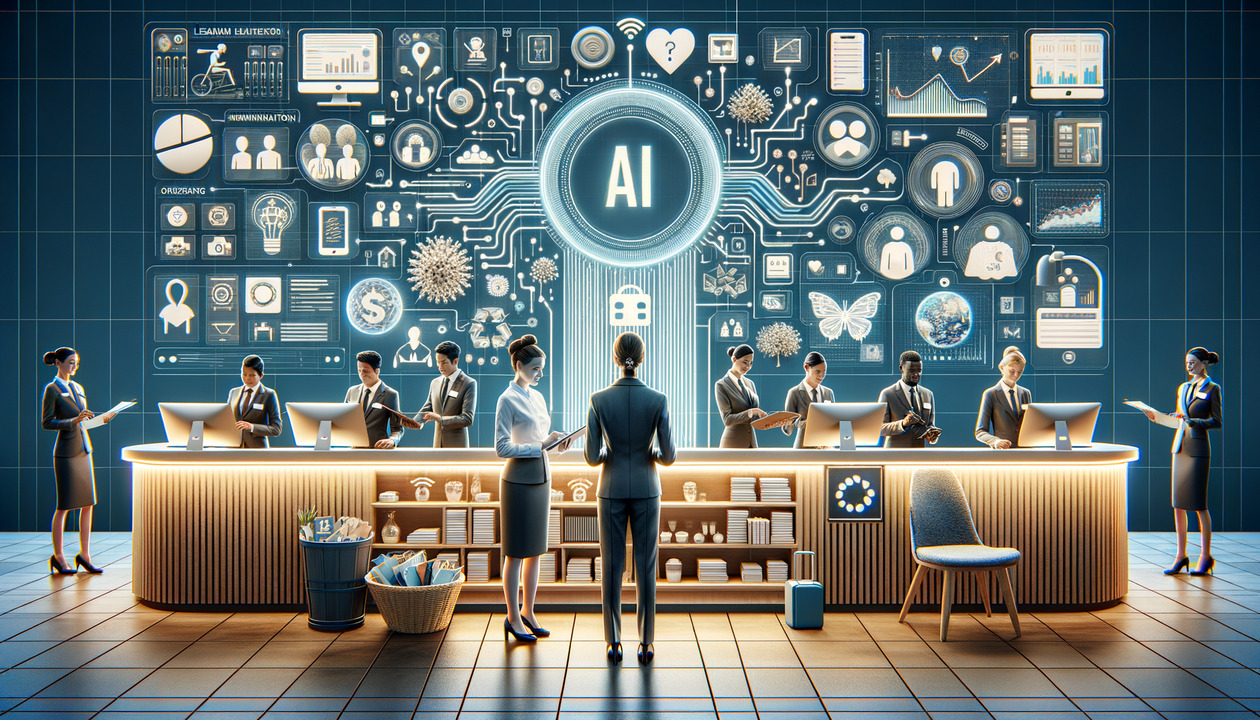
Innovative Hospitality Management Techniques
Dive into modern hotel management tactics and event coordination strategies. Learn advanced customer service skills tailored for the tourism sector. Explore cutting-edge tools to enhance guest experiences.
In the rapidly evolving landscape of hospitality, embracing innovative management techniques is essential for staying ahead. Today's hotel managers and event coordinators are tasked with not only meeting the expectations of their guests but exceeding them. This requires a deep understanding of modern strategies tailored to the unique demands of the tourism sector. Below, we explore advanced techniques that are redefining the industry and enhancing guest experiences.
Modern Hotel Management Tactics
Hotel management has transformed dramatically with the integration of technology and new business practices. Here's how modern tactics are influencing the industry:
1. Data-Driven Decision Making:
Hotels now leverage big data to understand customer preferences, booking patterns, and occupancy trends. By harnessing analytics, managers can make informed decisions that drive both efficiency and guest satisfaction.
2. Sustainable Practices:
Eco-friendliness is no longer an option but a necessity. Implementing sustainable practices such as energy-efficient systems, waste reduction, and sourcing local products not only minimizes environmental impact but also appeals to the modern eco-conscious traveler.
3. Personalized Guest Services:
Personalization is key to outstanding hospitality. From customized welcome kits to tailor-made itineraries, understanding and anticipating the needs of guests can create memorable and unique experiences.
Advanced Customer Service Skills
Exceptional customer service is the cornerstone of successful hospitality management. Training programs now focus heavily on advanced skills that cater specifically to the tourism industry:
1. Emotional Intelligence:
Providing excellent service goes beyond technical skills. Developing emotional intelligence enables staff to empathize with guests and respond to their needs in a thoughtful and personalized manner.
2. Multilingual Capabilities:
The ability to communicate effectively with a global clientele can significantly enhance the guest experience. Investing in language training for staff ensures seamless interactions and demonstrates cultural sensitivity.
3. Conflict Resolution:
Handling complaints and resolving conflicts efficiently is vital. Training staff in conflict resolution techniques can turn potentially negative situations into positive experiences, fostering loyalty and positive reviews.
Event Coordination Strategies
Event planning in the hospitality sector demands creativity, precision, and adaptability. Modern strategies emphasize the following:
1. Hybrid Events:
The rise of hybrid events—combining in-person and virtual components—requires a reimagining of traditional event planning. This approach not only expands reach but also accommodates varying guest preferences in a post-pandemic world.
2. Technology Integration:
From virtual tours and digital check-ins to augmented reality experiences, integrating technology in events enhances engagement and streamlines processes.
3. Comprehensive Safety Protocols:
In today's environment, ensuring the safety and security of guests is paramount. Detailed contingency plans and strict adherence to health regulations are non-negotiable components of effective event planning.
Cutting-Edge Tools to Enhance Guest Experiences
Adopting new tools and technologies can redefine how guests perceive their stay. Some of the most impactful advancements include:
1. Artificial Intelligence (AI):
AI applications, such as chatbots and virtual concierges, provide instant assistance and information to guests, enriching the overall experience while freeing up staff for more complex tasks.
2. Internet of Things (IoT):
IoT devices offer smart room controls that allow guests to personalize their environment according to their preferences, enhancing comfort and convenience.
3. Virtual and Augmented Reality (VR/AR):
Using VR and AR can provide guests with immersive pre-arrival experiences, from virtual tours of the facilities to interactive destination guides.
In conclusion, the hospitality industry is being transformed by these innovative techniques and tools. By adopting modern management tactics and focusing on personalized customer service, hotel managers and event coordinators can not only meet but exceed guest expectations, ensuring a memorable and enjoyable experience. As technology continues to grow, staying informed and agile in its adoption will remain key to achieving sustained success in the ever-competitive tourism sector.